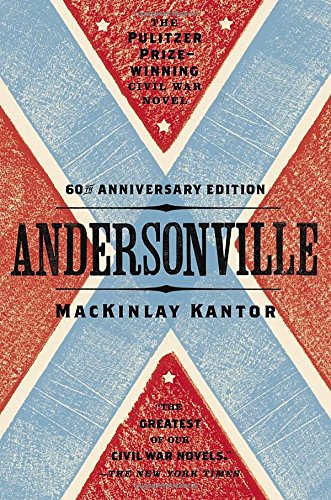Curated by SARAH WHELAN
This month, our Issue 14 contributors are reading works that examine the seams of time, from the construction of a fleeting impression, to the scaffolding of a historical drama. Whether it be a poem read from a pulpit or a paperback fished serendipitously from a pile of freebies, these recommendations celebrate literature’s ability to break through temporal boundaries.
Recommendations: Unfathoming by Andrea Cohen, Love and Garbage by Ivan Klíma, and Andersonville by MacKinlay Kantor.
 Unfathoming by Andrea Cohen, recommended by Alison Prine (poetry contributor)
Unfathoming by Andrea Cohen, recommended by Alison Prine (poetry contributor)
I was introduced to the poems in Unfathoming at a reading in the 150 year old First Baptist Church in Brattleboro, Vermont on a sunny afternoon this October. The High Victorian Gothic pulpit was a perfect backdrop for the graceful, contemplative poems of Andrea Cohen’s newest collection. Cohen read several of her small poems that are among my favorites, including the stunning poem, “Silence,” which is just twelve words:
Not an absence
of blackbirds
singing, but
an abundance
of blackbirds
listening.
What I love about a small poem is the vast room it leaves for the a reader to travel. Rather than a specific narrative, these small works create moments of distilled awareness. I found the calm, assured voice of Cohen’s poems invited me to consider the elastic tension between the grasp of connection and the yearning of loss –
Not fair, I’d say. Life
isn’t, you said, or rather,
the memory of you
spoke, and wave upon
wave keeps repeating.
(from “Cliffside”)
With unexpected turns and powerful landings, the spare and insistent poems of Unfathoming are the work of a seasoned artist. Cohen’s brilliant fifth collection is one I was grateful to discover, and will return to again and again.
 Love and Garbage by Ivan Klíma, recommended by Nicholas Friedman (poetry contributor)
Love and Garbage by Ivan Klíma, recommended by Nicholas Friedman (poetry contributor)
I found my copy of Love and Garbage in a giveaway pile of paperbacks, not knowing anything about it. In retrospect, I must have been attracted to the title’s promise of extremes. Set in Prague in the years preceding the Velvet Revolution, Love and Garbage tracks the troubled love affairs and artistic frustrations of a middle-aged writer whose works have been suppressed by a “jerkish” regime. (Klíma’s own work was banned in his native Czechoslovakia for two decades.) The narrative style is rather disjointed, but realist nonetheless. Our unnamed protagonist moves rapidly, and without transition, between his various meditations: from childhood to present concerns, from the horrors of Nazism to the failures of socialism, and yes, from love to garbage. Forbidden to publish, he earns his wages as a trash collector on the streets of Prague. If the novel is at times disorienting, the result is a lucid portrayal of a mind at work, picking through life in all its messiness. Those attractive extremes of the novel’s title prove the messiest of all. Yoked as they are by that simple conjunction, they might be altogether impossible to separate.
Andersonville by MacKinlay Kantor, recommended by Adam Padgett (fiction contributor)
Lately, I’ve been drawn toward reading more historical fiction, mostly because I’m blown away by how much careful labor goes into each of those creative projects, resurrecting life in particular. March by Geraldine Brooks, All the Light We Cannot See by Anthony Doerr, The Underground Railroad by Colson Whitehead. Each time, I’m left breathless by the writing and their unbelievable attention to detail.
Currently, though, I’m reading Andersonville by MacKinlay Kantor, which won the Pulitzer in 1956, and according to the back cover, the New York Times dubbed it, “The greatest of our Civil War novels.” Depicting real and fictional accounts of the notorious confederate war prison, the structure of the novel is that of an anthology of collected stories with characters who appear, disappear, and intermittently intersect with the stories of other characters. The reading experience reminds me of Moby-Dick in a lot of ways. Where Melville charted the rhythmic, and occasionally boring, sameness of a long journey out at sea, Andersonville charts a decaying passage of time, unearthing a savage brutality in the sameness.
Kantor presents a meticulously researched tome about an especially ruthless war prison, where captives were killed often by scurvy, starvation, or murder. However, Kantor does so with beautiful and delicate prose and encyclopedic detail that somehow manages to reveal humor, idealism, and beauty among the layers of decay.





